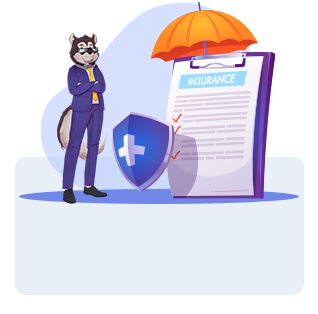Deciding to invest in life insurance is one of the most important decisions you will make to ensure the protection of your family in case of an emergency where you are no longer able to financially support them. However, deciding the type nad level of cover you may need might be a bit unclear.
Most insurers offer you a cover at the age of 18, although there is no standard maximum age as it differs for every insurer. Your age helps you determine the level of cover you may need as your financial responsiblities change at every stage of your life. For example, in your 30s you may have dependents to look after. As you reach your 50s, even though you would not have dependents as such, you may still need to repay ongoing debts. It is important to know that as you head into your 60s, some optional benefits might not be available to you and you may not be elegible for maximum level of cover when applying for a policy.
Your occupation can help you determine the structure of your policy. Some professions, like mining, firefihghting and contruction, are riskier than others and may require extra protection. Medical professionals are also an example of people exposed to specific hazards on a daily basis. Insurers often offer additional benefits like Accident Cover that can be added to your policy. There is also the option of Illness Cover that can help in case of specific medical conditions like heart disease, organ failure and cancer etc. To get more information on the optional benefit offered by each insurer and what they cover you for, read the Product Disclosure Statements of the relevant insurers.
Considering your income will help you decide how much premiums you can afford to pay comfortably. High income earners may have lead an elevated lifestyle with additional responsibilities like mortgages, childern's education costs, credit card debt or car loans etc. It is important to keep these costs in mind when deciding on the level of cover you're applying for.
Hobbies like knitting, reading or watching Netflix do not affect your insurance cover. However, if you enjoy adventurous activities like skydiving, rock climbing, bungee jumping or scuba diving then it will be worthwhile to look at an Adventure Sport or Sports Cover as an add on to your policy. These will financially protect you in case of an injury or death resulting from these pursuits. You may also want to take a closer look at the terms and any exclusions on your policy in regard to these activities. Another factor that can impact your premiums is if you smoke or not. Generally, people who smoke tend to have higher premiums.
Your medical history also has a significant impact on the terms and premiums of your policy. Some conditions like diabetes, mental illness inclusing anxiety, heart conditions and cancer can incur a loading, exclusions or even lead to the cover being declined. The terms offered would depend on the severity of the condition you suffer from and the treatment you are either undergoing now or did in the past. If you are healthy and do not have a pre-existing medical condition it is the best time to consider getting a cover in place. Once your policy is enforced, what you're covered for and your premiums won't change if you're diagnosed with an illness. However, it is best to read the fine print to be sure of what your cover has to offer.
If you would like to discuss the contents of this article, please call us at 02 7228 3905 or email us at info@angelicinsurance.com.au Please note that at Angelic Insurance, we can only provide you with general information, and do not consider your personal objectives and financial situation. You should consider whether the advice is suitable for you before making the final decision.

October 25, 2022

October 25, 2022

October 25, 2022

We are Australia’s leading risk management and consulting business, working in partnership with Mortgage Brokers in every State and Territory, to protect our local communities whether it be families or their businesses.
Read about our values that drive us everyday